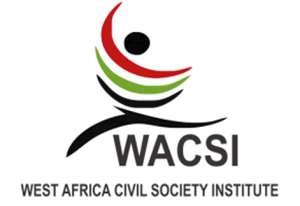
In many countries, civil society organisations (CSOs) are under constant pressure and operating in a closing civic space. It has spurred new forms of collaborations between social activists and social movements that are different from traditional social justice organisations in responding to closing civic space and the brazen attacks on citizen’s freedoms.
The West Africa Civil Society Institute (WACSI) in collaboration with the Fund for Global Human Rights (FGHR) has launched a report on ‘Collaborating for Effective Social Activism in West Africa’ through focused group discussions (FGDs) and in-depth interviews with traditional social justice organisations, social movements, and social activists.
It also draws insights from a traditional review of scholarly literature on partnerships or collaborations between traditional social justice organisations, social movements, social activists specifically through journal articles, reports, books, and working papers.
The research report projects some enabling factors that aid collaboration among traditional social justice organisations, social movements and social activists. They are shared interests in promoting social justice, the need for a unified voice to address the closing space phenomenon, visibility, and recognition, complementarity, learning, and capacity building opportunities, and availability of resources, and empowering leadership styles.
It however identified that collaboration among traditional social justice organisations, social movements, and social activists to promote social justice has not been all favourable. Such efforts are somehow undermined by unaccountable leadership, loss of trust, perceived loss of autonomy, ideological differences and incompatibility of goals and movement capture by traditional social justice organisations.
Movement capture transpired in part to traditional social justice organisations’ access and control over financial and non-financial resources in their engagement with social movements and social activists. Moreover, this has resulted in traditional social justice organisations coming into collaborative engagements with pre-defined goals which resulted in traditional social justice organisations setting the decision-making agenda or having an upper hand in decisionmaking.
Based on the findings, the paper offers recommendations for deepening collaboration among traditional social justice organisations, social movements, and social activists. It urges stakeholders to devise innovative strategies and tactics where all stakeholders should promote sustainable partnerships and document their experiences and challenges. It further calls for the need to enhance communication to build a cross-country (regional) alliance and solidarity. Most importantly, it recommends the need for mutual trust among all stakeholders. Access or download a copy of the research report here! https://bit.ly/socialactivismwa




 Lay KPMG audit report on SML-GRA contract before Parliament – Isaac Adongo tells...
Lay KPMG audit report on SML-GRA contract before Parliament – Isaac Adongo tells...
 Supervisor remanded for stabbing businessman with broken bottle and screwdriver
Supervisor remanded for stabbing businessman with broken bottle and screwdriver
 NDC watching EC and NPP closely on Returning Officer recruitment — Omane Boamah
NDC watching EC and NPP closely on Returning Officer recruitment — Omane Boamah
 Your decision to contest for president again is pathetic – Annoh-Dompreh blasts ...
Your decision to contest for president again is pathetic – Annoh-Dompreh blasts ...
 Election 2024: Security agencies ready to keep peace and secure the country — IG...
Election 2024: Security agencies ready to keep peace and secure the country — IG...
 People no longer place value in public basic schools; new uniforms, painting wil...
People no longer place value in public basic schools; new uniforms, painting wil...
 'Comedian' Paul Adom Otchere needs help – Sulemana Braimah
'Comedian' Paul Adom Otchere needs help – Sulemana Braimah
 Ejisu by-election: Only 33% of voters can be swayed by inducement — Global InfoA...
Ejisu by-election: Only 33% of voters can be swayed by inducement — Global InfoA...
 Minority will expose the beneficial owners of SML, recover funds paid to company...
Minority will expose the beneficial owners of SML, recover funds paid to company...
 Prof. Opoku-Agyemang has ‘decapitated’ the NPP’s strategies; don’t take them ser...
Prof. Opoku-Agyemang has ‘decapitated’ the NPP’s strategies; don’t take them ser...
